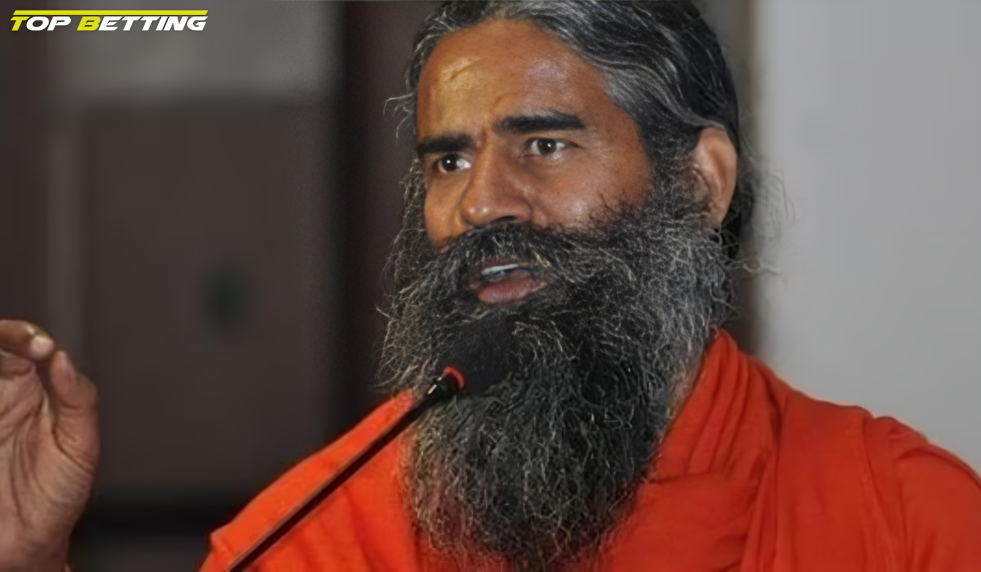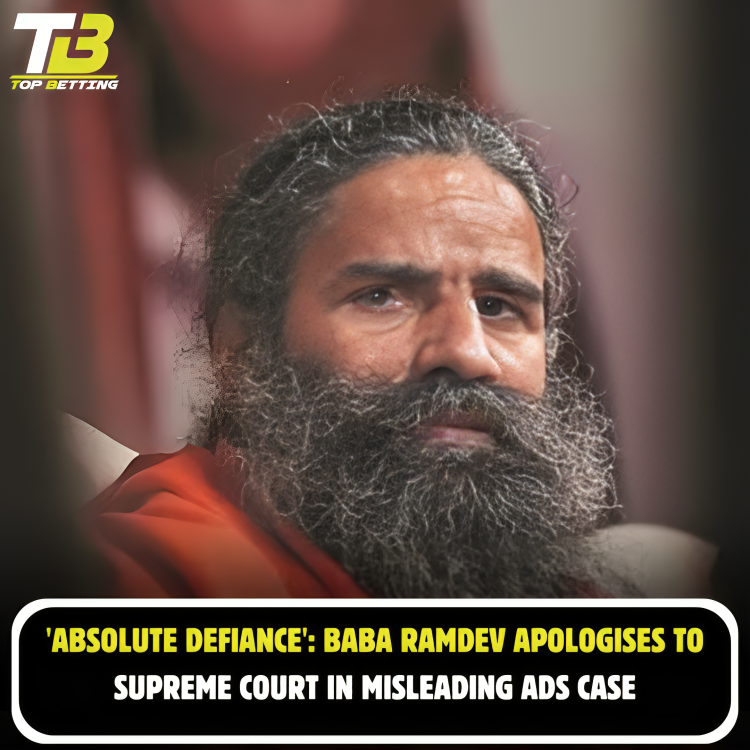
Baba Ramdev apologises to Supreme Court
Ramdev’s lawyer said he wanted to apologise to the court in person.
New Delhi: Yoga Guru Baba Ramdev on Tuesday issued an unconditional apology to the Supreme Court for not complying with its order in the misleading advertisements case.
Baba Ramdev and Patanjali Ayurved’s managing director Acharya Balkrishna appeared before the Supreme Court today, days after it issued show cause notices asking why contempt proceedings shouldn’t be initiated against them.
On March 19, the apex court directed Ramdev and Balkrishna to appear before it after taking exception to the company’s failure to respond to the notice issued in the case.
The top court had said it deemed it appropriate to issue a show cause notice to Ramdev as the advertisements issued by Patanjali, which were in the teeth of the undertaking given to the court on November 21, 2023, reflect an endorsement by him.
The court had severely criticised the company for not complying with its undertaking that it would not publish advertisements of products claiming cure for diseases.
“Requesting the court to note my presence and unconditional apology,” Ramdev’s counsel said.
The Supreme Court asked Baba Ramdev to abide by his company’s undertaking given to the court. “You have broken every barrier,” the court observed.
“This is absolute defiance. Not just SC, every order passed by courts across the country has to be respected,” the court added.
Patanjali Ayurved Ltd. had assured the top court on November 21, 2023 that it would not violate any law, especially the laws relating to advertising or branding of products manufactured and marketed by it.
The firm had also assured the bench headed by Justice Hima Kohli that “no casual statements claiming medicinal efficacy or against any system of medicine will be released to the media in any form.”
The top court is hearing a plea of the Indian Medical Association (IMA) alleging a smear campaign by Ramdev against the Covid vaccination drive and modern system of medicine.
Baba Ramdev, the renowned yoga guru and founder of Patanjali Ayurved, found himself at the center of controversy as he issued an apology to the Supreme Court of India regarding misleading advertisements. The apology came as a culmination of a long-standing legal battle stemming from allegations of false claims made in Patanjali’s advertisements for its products.
The saga began when various consumer rights groups and individuals raised concerns over the veracity of the claims made in advertisements promoting Patanjali’s range of products. These claims, which included assertions of the efficacy of certain herbal remedies in curing diseases, attracted the attention of regulatory authorities and ultimately led to legal action against Baba Ramdev and Patanjali Ayurved.
The Supreme Court, acting as the final arbiter in the matter, took a stern stance against what it deemed to be deceptive advertising practices. In a landmark judgment, the court held Baba Ramdev and Patanjali Ayurved accountable for disseminating misleading information to the public, which could potentially endanger the health and safety of consumers.
The court’s decision marked a significant setback for Baba Ramdev, who had built a reputation as a trusted figure in the realm of traditional medicine and holistic wellness. The ruling not only tarnished his image but also dealt a blow to the credibility of Patanjali Ayurved, a company that had rapidly gained popularity for its purportedly natural and Ayurvedic products.
In the face of mounting legal pressure and public scrutiny, Baba Ramdev initially displayed a defiant attitude, refusing to retract the controversial advertisements or issue an apology. His steadfastness only served to exacerbate the situation, drawing further condemnation from both the judiciary and the general public.
However, as the legal battle dragged on and the repercussions of his actions became increasingly apparent, Baba Ramdev eventually relented. In a surprising turn of events, he issued a formal apology to the Supreme Court, expressing regret for any misrepresentation or harm caused by the misleading advertisements.
Baba Ramdev’s apology, though belated, was met with a mix of skepticism and relief. While some hailed it as a step in the right direction towards accountability and transparency, others viewed it as a calculated move to salvage his reputation and mitigate legal consequences.
The episode surrounding Baba Ramdev’s misleading advertisements serves as a cautionary tale about the perils of deceptive marketing practices. It underscores the importance of upholding truthfulness and integrity in advertising, especially when it comes to products that impact public health and well-being.
Moreover, the incident sheds light on the growing scrutiny of traditional and alternative medicine in India, where the market for Ayurvedic and herbal products continues to expand rapidly. As consumers become increasingly discerning and vigilant, companies like Patanjali Ayurved must prioritize honesty and compliance with regulatory standards to maintain their credibility and trustworthiness.

In the aftermath of the controversy, Baba Ramdev and Patanjali Ayurved face the daunting task of rebuilding their reputation and regaining the trust of consumers. Whether they can successfully navigate this challenge remains to be seen, but one thing is certain: the repercussions of their actions will reverberate throughout the industry for years to come.











